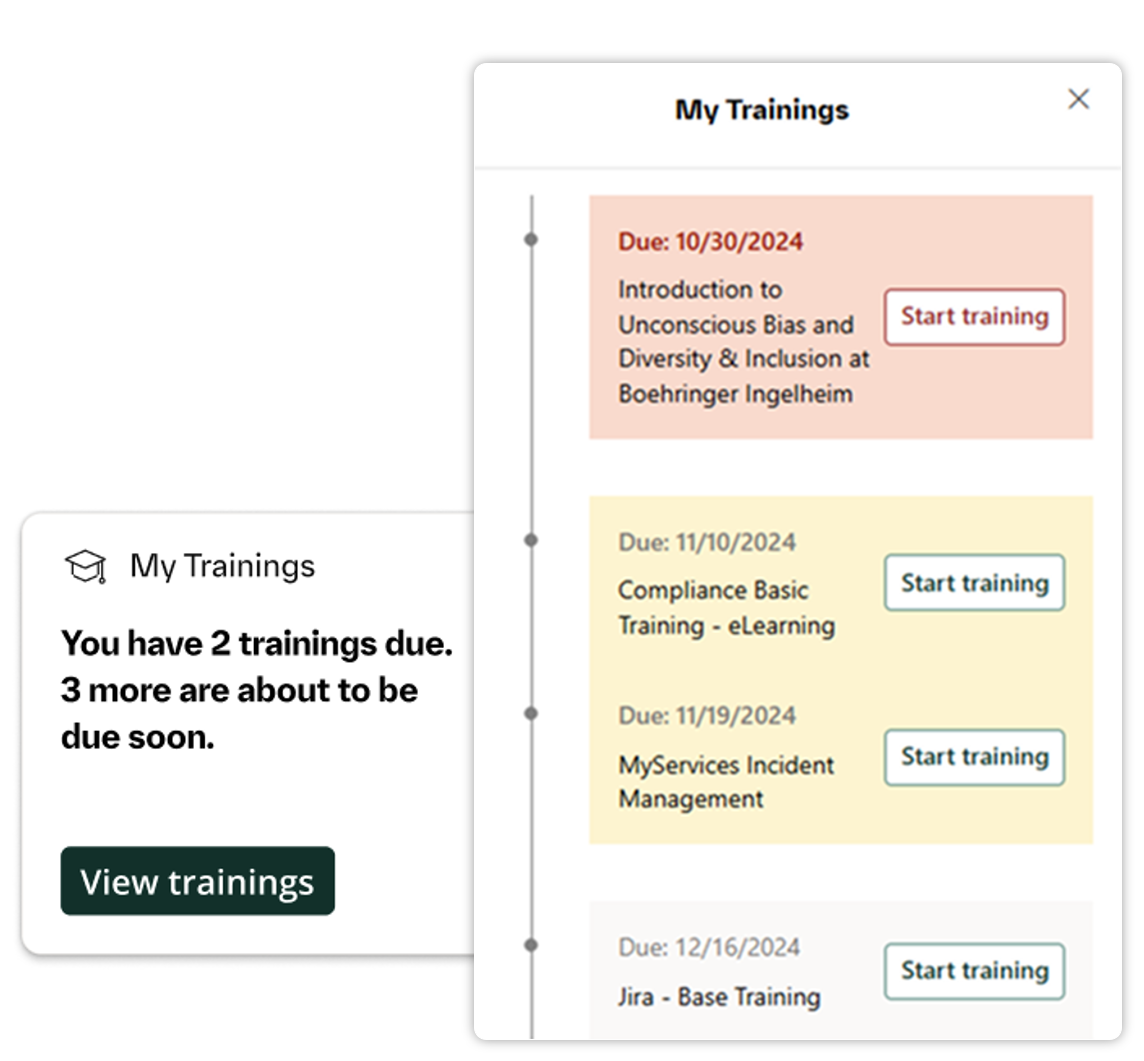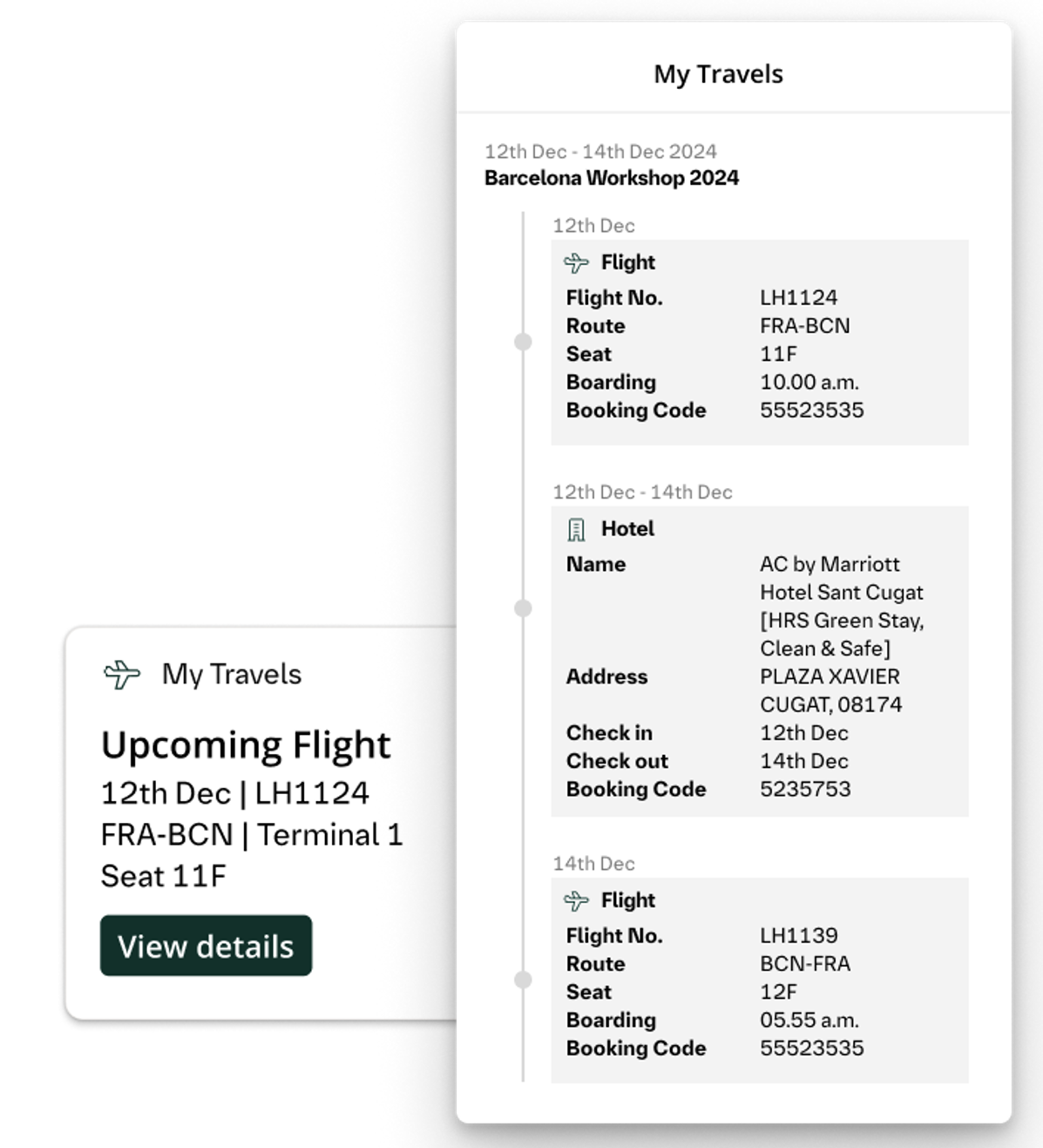The creation of a unified employee dashboard addressed the challenge of scattered tools and inconsistent communication. By delivering personalised content, enhancing collaboration for hybrid teams, and integrating seamlessly with existing systems, the dashboard transformed the digital workplace into a more connected and efficient experience.
Transforming Complex Requirements into User-Centred Design
Designing Adaptive, Actionable Content for Every User
1. Translating Requirements into Actionable Strategy
Working closely with global stakeholders and product owners, I translated complex requirements into an actionable design strategy that aligned with Boehringer Ingelheim's regulatory constraints and enterprise architecture. The goal was to ensure the dashboard's features would meet both organisational standards and employee needs.
Adaptive Cards offer a rich and interactive experience, allowing users to access real-time data from multiple systems, all within their personalised digital workspace. Each card was designed to be modular, flexible, and content-specific, enabling employees to engage with actionable information directly from their dashboard, saving time and increasing productivity.
Creating reusable components in Figma brought multiple benefits. It ensured all new cards aligned with the design system, while also enabling quick mock-ups for initial testing. This made it easier to rapidly iterate designs based on user feedback.
I worked closely with the development team and key stakeholders to ensure the design could adapt to the specific needs of various user groups. Through iterative user research, testing, and feedback, the cards were refined to ensure they were intuitive and seamlessly integrated into the existing workflow.
Mapping all scenarios and variants of the approval process allowed us to capture edge cases, align designs and language for consistency, uncover key decision points, and ultimately create card views that supported the end-to-end user journey.
I ensured that the solution adhered to Boehringer Ingelheim’s global regulatory standards, while maintaining flexibility for future updates and additions. This included designing each card to be scalable, ensuring that new content could be easily integrated without disrupting the user experience.


Transforming User Experience Through Personalised, Actionable Data
Adaptive Cards significantly enhanced the employee dashboard by providing personalised, real-time information, allowing users to access and act on critical tasks instantly. This led to greater engagement with the digital workplace and improved productivity.
Deciding which cards to design and release was based on several factors: relevance to the number of people, frequency of interaction, timesaving potential, and overall enjoyment. The canteen menu proved a strong choice, as it was relevant to a wide audience, updated daily, and of high interest to staff.
By consolidating relevant, actionable information into a single view, the Adaptive Cards reduced the need for employees to navigate across multiple systems, streamlining tasks and improving workflow efficiency.
The cards were designed to be compliant with Boehringer Ingelheim’s regulatory constraints while remaining scalable to accommodate future needs. This created a long-term solution that could evolve with the company.

